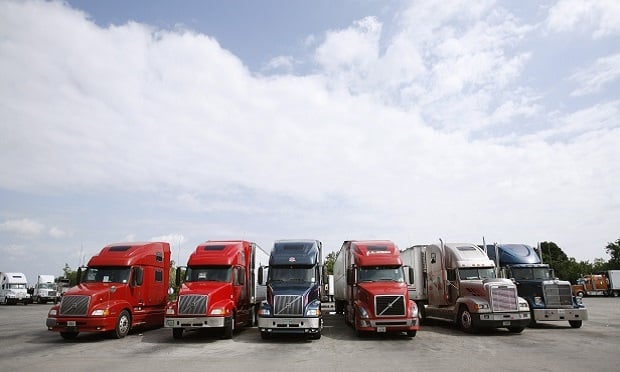 Insurance carriers are now challenged to turn the many difficult issues facing the trucking industry into opportunities. (Photo: AP Images/ALM Media archives)
Insurance carriers are now challenged to turn the many difficult issues facing the trucking industry into opportunities. (Photo: AP Images/ALM Media archives)
For many trucking companies, 2018 was a record year in terms of profit. However, 2019 proved to be the exact opposite — the perfect storm of major issues affecting the transportation industry, including significant overcapacity, freight rates remaining severely depressed, a harder insurance market, nuclear verdicts, and serious legislative challenges. Further, statistics from the American Transportation Research Institute (ATRI), show that, for the first time, insurance premiums ranked in the top 10 for the trucking industry's biggest overall costs.
Recommended For You
Want to continue reading?
Become a Free PropertyCasualty360 Digital Reader
Your access to unlimited PropertyCasualty360 content isn’t changing.
Once you are an ALM digital member, you’ll receive:
- Breaking insurance news and analysis, on-site and via our newsletters and custom alerts
- Weekly Insurance Speak podcast featuring exclusive interviews with industry leaders
- Educational webcasts, white papers, and ebooks from industry thought leaders
- Critical converage of the employee benefits and financial advisory markets on our other ALM sites, BenefitsPRO and ThinkAdvisor
Already have an account? Sign In Now
© Touchpoint Markets, All Rights Reserved. Request academic re-use from www.copyright.com. All other uses, submit a request to [email protected]. For more inforrmation visit Asset & Logo Licensing.







